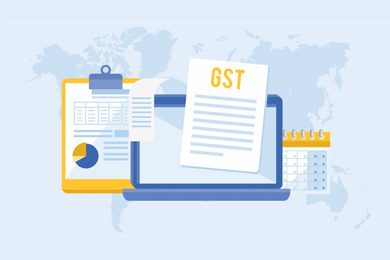



 Tech & IT
Tech & IT
 Business
Business
 Coding & Developer
Coding & Developer
 Finance & Accounting
Finance & Accounting
 Academics
Academics
 Office Applications
Office Applications
 Art & Design
Art & Design
 Marketing
Marketing
 Health & Wellness
Health & Wellness
 Sounds & Music
Sounds & Music
 Lifestyle
Lifestyle
 Photography
Photography
More Learnfly
Business Solution Become an InstructorAccounting involves systematically recording, analyzing, and interpreting financial transactions. It provides insights into a business's financial health, aiding decision-making, regulatory compliance, and the communication of financial information to stakeholders.

By : Biz Facility
Bookkeeping process and understanding how they are done...
4.3 241
6 lectures All Level

By : Biz Facility
Practical Approach to understading Capital Allowances and Recoupments...
4.3 173
6 lectures All Level

By : Biz Facility
Not sure what business expenses to claim?...
4.3 162
5 lectures Beginner Level

By : Biz Facility
Need to know how PAYROLL works?...
4.3 188
4 lectures All Level

By : Biz Facility
Read and Understand Cash Flow Statements...
4.3 172
4 lectures All Level

By : Biz Facility
Learn to Prepare Management Reports in Excel...
4.3 555
6 lectures All Level

By : LEMMY FRANCISCO KAWONGA
Statement of Cash Flows...
4.8 1449
9:12:40 hrs 46 lectures Beginner Level

By : LEMMY FRANCISCO KAWONGA
Bookkeeping & Accounting: Bank Reconciliation...
4.8 1246
4:57:10 hrs 16 lectures Beginner Level
.jpg)
By : SONU THOMAS
Learn AP and P2P in a structured manner...
4.5 879
26 lectures All Level
.jpg)
By : SONU THOMAS
ONE STOP REPOSITORY of basic journal entries....
4.5 897
10 lectures Beginner Level












Learn more topics in various categories at one place. Explore unlimited courses in other categories and up-skill yourself today.

 Jazeb Akram
Jazeb Akram 4.2 771151 Beginner Level

 John Hedengren
John Hedengren 4.1 569054 All Level

 Ranjan Pandey
Ranjan Pandey 4.1 346720 All Level

 Muhammad Ahsan Pervaiz
Muhammad Ahsan Pervaiz 4.2 101327 All Level

 Pieter Vliegenthart
Pieter Vliegenthart 4.6 100908 All Level

 Jerome P.
Jerome P. 4.8 100870 All Level

 Senol Atac
Senol Atac 4.9 100082 All Level

 Vikas Munjal
Vikas Munjal 4.8 100059 Beginner Level

 Avinash A
Avinash A 4.8 100002 All Level

 Biz Facility
Biz Facility 6 Lectures Beginner Level

 Biz Facility
Biz Facility 6 Lectures Beginner Level

 Biz Facility
Biz Facility 5 Lectures Beginner Level

 Biz Facility
Biz Facility 4 Lectures Beginner Level

 Biz Facility
Biz Facility 4 Lectures Beginner Level

 Biz Facility
Biz Facility 6 Lectures Beginner Level
.jpg)
 Prabh Kirpa Classes
Prabh Kirpa Classes8 Lectures Beginner Level

 AWESOME EMMANUEL
AWESOME EMMANUEL57 Lectures Beginner Level

 AWESOME EMMANUEL
AWESOME EMMANUEL42 Lectures Beginner Level
.jpg)
 Piyush Arora, CFA, CAIA
Piyush Arora, CFA, CAIA16 Lectures Beginner Level

 LEMMY FRANCISCO KAWONGA
LEMMY FRANCISCO KAWONGA 46 Lectures Beginner Level

 LEMMY FRANCISCO KAWONGA
LEMMY FRANCISCO KAWONGA 16 Lectures Beginner Level
.png)
 CA Kuldeep Sharma
CA Kuldeep Sharma32 Lectures Beginner Level
.jpg)
 Kiran Beldar
Kiran Beldar8 Lectures Beginner Level
.jpg)
 Kiran Beldar
Kiran Beldar8 Lectures Beginner Level
.jpg)
 Kiran Beldar
Kiran Beldar8 Lectures Beginner Level
.jpg)
 SONU THOMAS
SONU THOMAS26 Lectures Beginner Level
.jpg)
 SONU THOMAS
SONU THOMAS10 Lectures Beginner Level
.png)
 CA Kuldeep Sharma
CA Kuldeep Sharma16 Lectures Beginner Level
.jpg)
 Zenith Academics
Zenith Academics55 Lectures Beginner Level

 Zenith Academics
Zenith Academics18 Lectures Beginner Level

 Zenith Academics
Zenith Academics39 Lectures Beginner Level

 Veer Tutorial
Veer Tutorial71 Lectures Beginner Level

 Graziano Giuseppe Di Capua
Graziano Giuseppe Di Capua27 Lectures Beginner Level

 Victor Ogundele
Victor Ogundele81 Lectures Beginner Level

 Biz Facility
Biz Facility 5 Lectures Beginner Level
 (4).jpg)
 Biswaroop Sen Sen
Biswaroop Sen Sen27 Lectures Beginner Level

 Steve Liguori
Steve Liguori19 Lectures Beginner Level
.jpg)
 Greg Henriques
Greg Henriques15 Lectures Beginner Level
.jpg)
 Shalom Martin
Shalom Martin19 Lectures Beginner Level
.jpg)
 Shalom Martin
Shalom Martin11 Lectures Beginner Level

 Urs Ravi I Vedanta Educational Academy
Urs Ravi I Vedanta Educational Academy275 Lectures Beginner Level

 Daniel Alexandru Petrescu
Daniel Alexandru Petrescu8 Lectures Beginner Level

 Daniel Alexandru Petrescu
Daniel Alexandru Petrescu8 Lectures Beginner Level

 David Johnson
David Johnson20 Lectures Beginner Level

 Daniel Alexandru Petrescu
Daniel Alexandru Petrescu8 Lectures Beginner Level

 Daniel Alexandru Petrescu
Daniel Alexandru Petrescu9 Lectures Beginner Level

 Daniel Alexandru Petrescu
Daniel Alexandru Petrescu8 Lectures Beginner Level

 Daniel Alexandru Petrescu
Daniel Alexandru Petrescu10 Lectures Beginner Level

 Daniel Alexandru Petrescu
Daniel Alexandru Petrescu12 Lectures Beginner Level

 Daniel Alexandru Petrescu
Daniel Alexandru Petrescu9 Lectures Beginner Level
 (1).jpg)
 Daniel Alexandru Petrescu
Daniel Alexandru Petrescu9 Lectures Beginner Level

 Daksh Murkute
Daksh Murkute19 Lectures Beginner Level

 Dobromir Dikov FCCA, FMVA
Dobromir Dikov FCCA, FMVA55 Lectures Beginner Level

 Chester Sky
Chester Sky14 Lectures Beginner Level

 Humberto Malaspina
Humberto Malaspina47 Lectures Beginner Level

 Accounting is a piece of cake VRN
Accounting is a piece of cake VRN9 Lectures Beginner Level

 Steve Liguori
Steve Liguori10 Lectures Beginner Level

 Steve Liguori
Steve Liguori14 Lectures Beginner Level

 Tawanda Irvine Makoni
Tawanda Irvine Makoni10 Lectures Beginner Level

 Tawanda Irvine Makoni
Tawanda Irvine Makoni18 Lectures Beginner Level

 Atif Noor
Atif Noor12 Lectures Beginner Level

 Anurag Singal
Anurag Singal17 Lectures Beginner Level

 Ross Maynard
Ross Maynard12 Lectures Beginner Level

 Anurag Singal
Anurag Singal23 Lectures Beginner Level

 Blair Cook
Blair Cook10 Lectures Beginner Level

 Blair Cook
Blair Cook5 Lectures Beginner Level

 Blair Cook
Blair Cook5 Lectures Beginner Level

 Blair Cook
Blair Cook7 Lectures Beginner Level

 Blair Cook
Blair Cook7 Lectures Beginner Level

 Blair Cook
Blair Cook8 Lectures Beginner Level

 Blair Cook
Blair Cook28 Lectures Beginner Level

 Blair Cook
Blair Cook8 Lectures Beginner Level

 Blair Cook
Blair Cook7 Lectures Beginner Level

 CA N Raja Natarajan
CA N Raja Natarajan25 Lectures Beginner Level

 Manish Gupta
Manish Gupta34 Lectures Beginner Level

 Quantic Statistics R spatial analysis
Quantic Statistics R spatial analysis13 Lectures Beginner Level

 Ashwini Bissa
Ashwini Bissa14 Lectures Beginner Level
Accounting is the process of systematically recording, summarizing, and analyzing financial transactions of a business or organization. It involves preparing financial statements, interpreting financial data, and ensuring compliance with relevant accounting standards.
Accounting is essential for businesses to track their financial performance, make informed decisions, and comply with legal and regulatory requirements. It provides stakeholders, such as investors and creditors, with a clear picture of a company's financial health.
Basic accounting principles include the accrual basis (recording transactions when they occur, not when cash changes hands), the matching principle (matching expenses with revenues), and the principle of conservatism (prudent recognition of losses).
Financial statements are reports that provide a snapshot of a company's financial position and performance. The main statements are the balance sheet (assets, liabilities, equity), income statement (revenues, expenses, profit), and cash flow statement (cash inflows and outflows).
Technology has transformed accounting through the use of accounting software, automation, and cloud computing. These advancements streamline bookkeeping processes, improve accuracy, and provide real-time access to financial data, enhancing efficiency in financial management.





